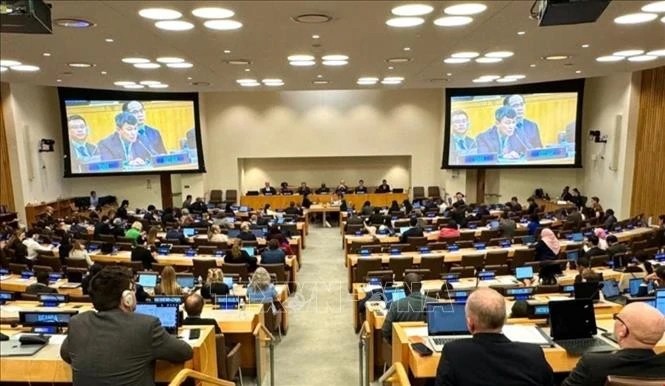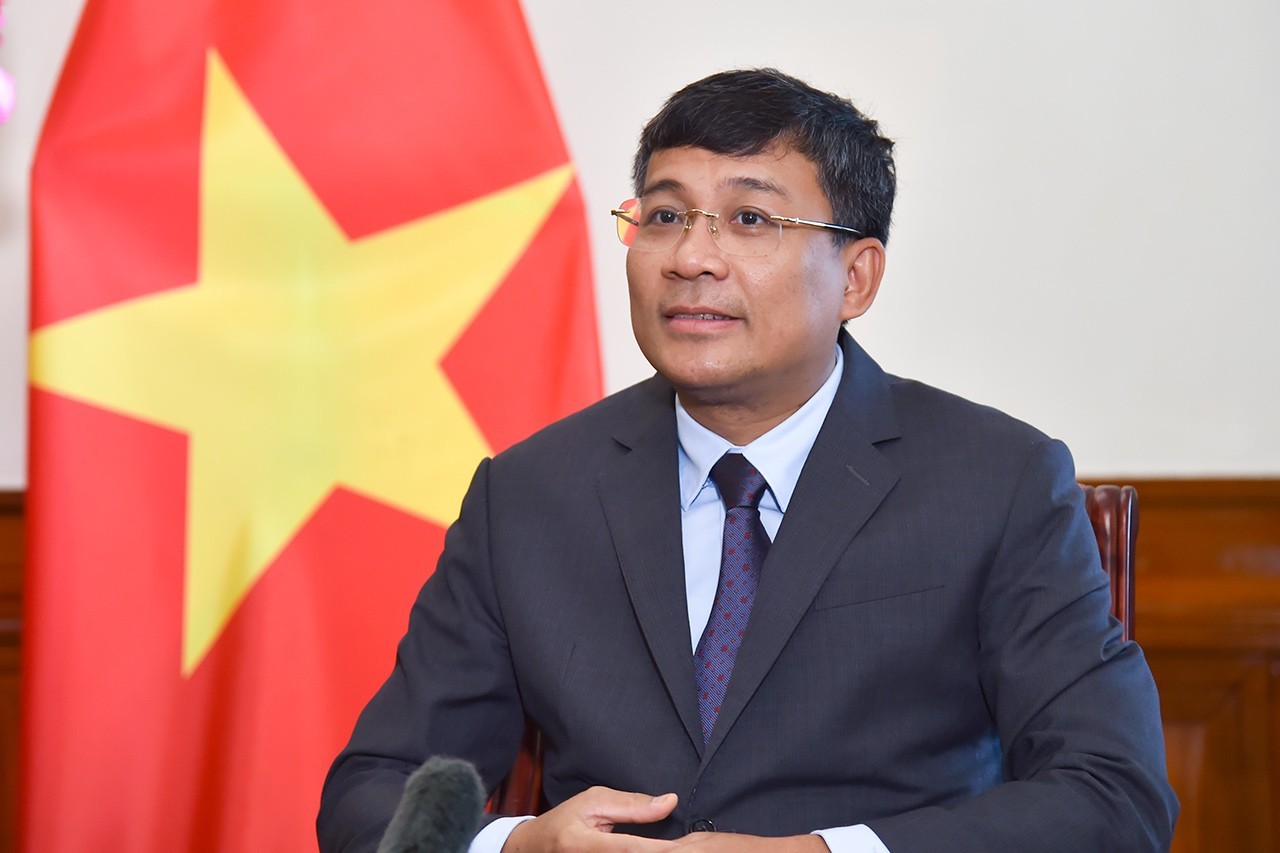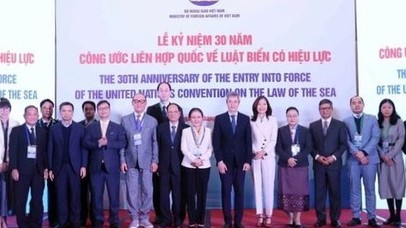DOC Promotes Peace, Trust, Cooperation between ASEAN, China
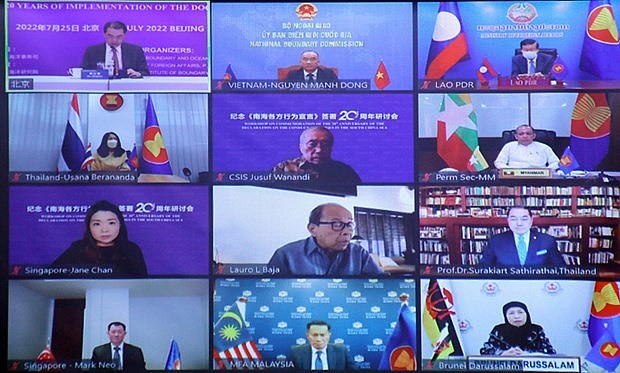 |
| A virtual conference is held by the Chinese Ministry of Foreign Affairs on July 25 to mark the 20th anniversary of the Declaration of the Conduct of Parties in the East Sea (DOC). Photo: the Vietnamese Ministry of Foreign Affairs |
Former Vietnamese Minister of Foreign Affairs Nguyen Dy Nien made the statement at a conference held by the Chinese Ministry of Foreign Affairs on July 25.
Organised to mark the 20th anniversary of the DOC, the virtual event brought together incumbent and former Foreign Ministers of ASEAN member states, including those joining the signing of the document in 2002, as well as a number of scholars from both sides, VietnamPlus said.
Representatives from Vietnam also comprised Ambassador to China Pham Sao Mai and Vice Chairman of the National Boundary Commission under the Ministry of Foreign Affairs Nguyen Manh Dong.
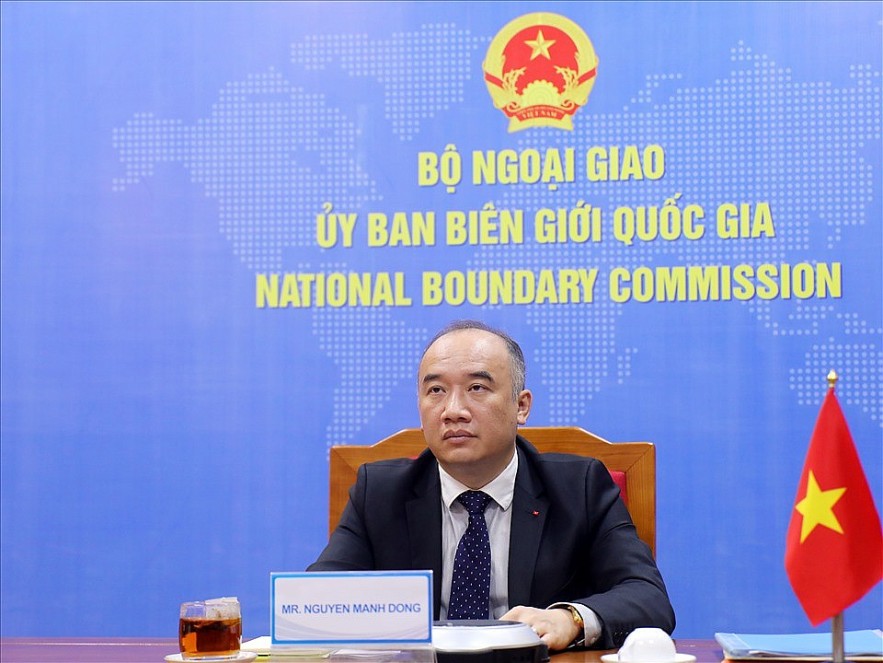 |
| Vice Chairman of the National Boundary Commission under the Ministry of Foreign Affairs Nguyen Manh Dong at the event. Photo: VNA |
The event featured three sessions discussing the historic moment of the signing, the results and prospects for the DOC implementation, and the progress and direction for consultations on a Code of Conduct in the East Sea (COC) between ASEAN and China.
Nien emphasised that the DOC was the first important document signed between ASEAN and a partner country. It reaffirms respect and commitment of the parties to freedom of navigation and aviation in the South China Sea (Bien Dong Sea) and to peacefully settling disputes in accordance with international law, including the 1982 UNCLOS, he said.
Work together to build a sea of peace, friendship and cooperation
In his remarks, Chinese State Councillor and Foreign Minister Wang Yi affirmed that the successful signing and implementation of the DOC provides important inspirations, according to the Chinese Ministry of Foreign Affairs.
First, peace and stability in the South China Sea is an important precondition for regional development. Second, countries in the region are the ones who have the final say on properly handling the South China Sea issue. Third, the East Asian way is an effective mean to build and uphold consensus.
“We must work together to truly build the South China Sea into a sea of peace, friendship and cooperation,” he said.
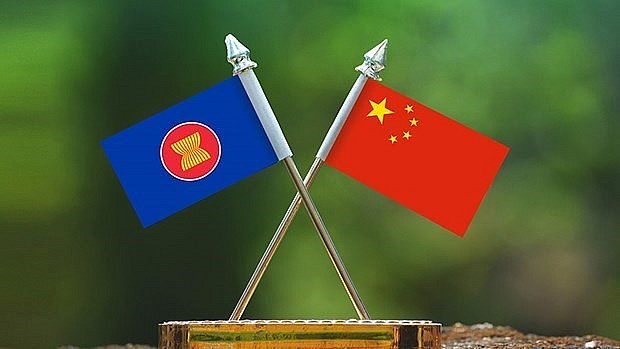 |
| Photo: aseanbriefing.com |
Wang called on concerned parties to continue to hold the bottom line of peace, promote dialogue and consultation, deepen maritime cooperation, and advance COC negotiations.
Incumbent FMs from ASEAN member states held that ASEAN and China must continue fully implementing the DOC and provide an enabling environment for the talks on the COC; while their predecessors recalled the necessity of the DOC and the process towards its signing two decades ago and reiterated its crucial role in maintaining regional peace, security, stability, cooperation and prosperity.
Delegates held that the results of COC negotiations have been fairly positive and substantive so far and that both sides must practice self-restraint, avoid any actions that may complicate the situation, and respect rights and interests of concerned parties in accordance with international law, particularly the 1982 UNCLOS./.
| The Declaration on the Conduct of Parties in the South China Sea (DOC) was signed by China and the members of ASEAN in Phnom Penh in 2002. The parties reaffirmed their commitment to the purposes and principles of the Charter of the United Nations, the 1982 UN Convention on the Law of the Sea, the Treaty of Amity and Cooperation in Southeast Asia, the Five Principles of Peaceful Coexistence, and other universally recognized principles of international law which shall serve as the basic norms governing state-to-state relations. They were committed to exploring ways for building trust and confidence in accordance with the above-mentioned principles and on the basis of equality and mutual respect. They also reaffirmed their respect for and commitment to the freedom of navigation in and overflight above the South China Sea as provided for by the universally recognised principles of international law, including the 1982 UN Convention on the Law of the Sea. The parties undertook to resolve their territorial and jurisdictional disputes by peaceful means, without resorting to the threat or use of force, through friendly consultations and negotiations by sovereign states directly concerned, in accordance with universally recognized principles of international law, including the 1982 UN Convention on the Law of the Sea. The pledged to exercise self-restraint in the conduct of activities that would complicate or escalate disputes and affect peace and stability including, among others, refraining from action of inhabiting on the presently uninhabited islands, reefs, shoals, cays, and other features and to handle their differences in a constructive manner. |
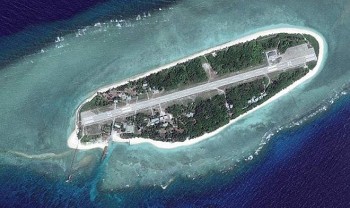 | Vietnam Asks Taiwan to Stop Illegal Live-Fire Drills The Vietnamese Ministry of Foreign Affairs has said Taiwan’s holding military drills off Vietnam’s Truong Sa (Spratly) archipelago is a serious violation of its sovereignty. |
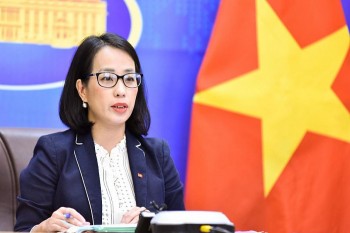 | Vietnam Request China to Halt Militarization on Bien Dong Sea Vietnam has full legal grounds and historical evidence to prove its sovereignty over the Hoang Sa and Truong Sa archipelagoes in accordance with international law ... |
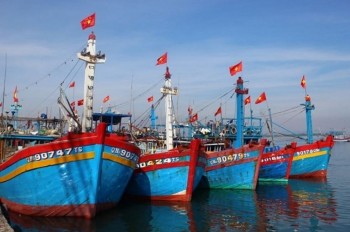 | Vietnam Fisheries Society Opposes China’s Bien Dong Sea Fishing Ban The Vietnam Fisheries Society on May 4 voiced its strong opposition to China’s unilateral fishing ban in the Bien Dong Sea, known internationally as the ... |
Recommended
 Seas and islands
Seas and islands
Vietnam Endorses Common Voice on Ocean Jurisdiction
 Seas and islands
Seas and islands
Dialogue as Key to Settling Disputes and Advancing Law of the Sea
 Seas and islands
Seas and islands
RoK Navy Ship Pays Friendly Visit to Da Nang City
 Seas and islands
Seas and islands
Naval Region 5 Promotes Reading Culture, Fosters Patriotism
Popular article
 Seas and islands
Seas and islands
Coast Guard Region 2 Command Hosts Philippine Coast Counterpart
 Seas and islands
Seas and islands
Vietnam - Thailand Navy: Coordination to Well Address Problems at Sea
 Seas and islands
Seas and islands
Honoring the Fallen: Incense Offering for the 37th Anniversary of Gac Ma
 Seas and islands
Seas and islands




